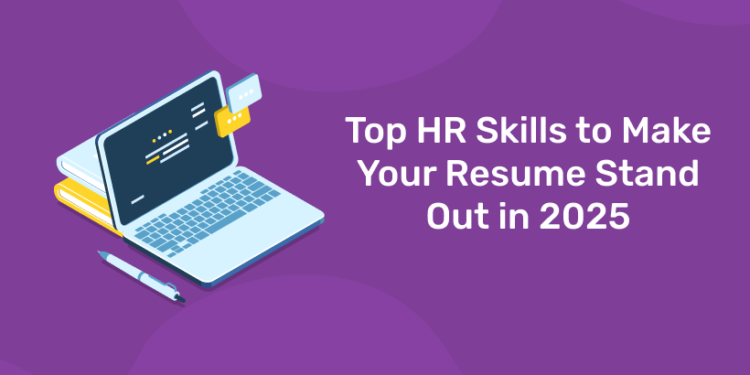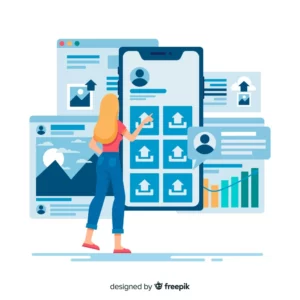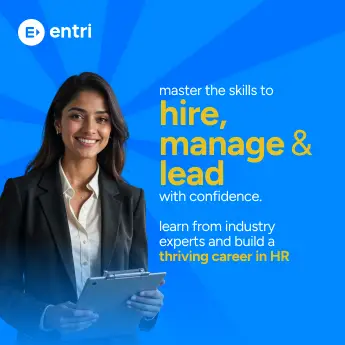Table of Contents
Key Takeaways:
- Mastery of digital HR tools and HRIS systems is essential for modern HR operations and analytics.
- Strategic workforce planning aligns HR activities with organizational success and future talent needs.
- Building an exceptional employee experience includes engagement, DEI, and effective remote work strategies.
- AI and automation improve HR efficiency but require ethical oversight and human-centered application.
- Emotional intelligence, change management, compliance, project management, and talent development round out a comprehensive HR skill set.
Introduction
The world of work has never been more complex—and HR professionals have never been more central to an organization’s success. Today’s HR roles demand far more than personnel management. From leveraging cutting-edge AI tools to crafting inclusive remote work cultures and driving strategic workforce planning, modern HR is a dynamic blend of technology, strategy, and deep human understanding. If you’re looking to build an HR resume that stands out in 2025, you need to showcase a well-rounded skill set that meets the needs of today’s employers and anticipates the future of work.
Whether you’re stepping into HR for the first time or aiming to pivot into senior leadership roles, the key is to demonstrate how your skills align with the evolving expectations of the profession. In a job market flooded with talent, being able to prove measurable impact and combine digital know-how with emotional intelligence will make recruiters take notice. Let’s explore the essential skills that will make your HR resume shine in 2025 and beyond—with actionable tips to help you grow in each area.
Essential HR Skills to Make Your Resume Stand Out in 2025
Human Resources is a multifaceted and dynamic profession where combining traditional people skills with modern technology and strategic insight is critical. To excel and stand out in 2025, HR professionals need a broad, versatile skill set that covers everything from communication to AI, from compliance to coaching.
Below are the 18 most essential HR skills to highlight on your resume, each expanded with clear explanations and actionable tips to help you understand and develop these competencies for career growth.
1. Communication Skills
Effective communication is the foundation of HR. You engage with employees, managers, and executives, tailoring your message for diverse audiences while maintaining clarity and professionalism. Strong verbal, written, and virtual communication skills foster understanding and trust.
Tip: Practice active listening and storytelling to convey HR data and initiatives compellingly.
2. HRIS and Digital HR Expertise
Proficiency in Human Resource Information Systems (HRIS) such as Workday, SAP SuccessFactors, and BambooHR streamlines operations and data management. Digital HR skills also include familiarity with AI recruitment platforms and employee engagement tools.
Tip: Gain hands-on experience with popular HR software and showcase it as a measurable skill on your resume.
Read in detail: HR for Startups and Small Businesses
3. Data Analytics and Workforce Metrics
HR professionals increasingly rely on data to make informed decisions about talent acquisition, retention, and performance. Mastery of data collection, interpretation, visualization, and predictive analytics is a game-changer in forecasting workforce needs and strategizing accordingly.
Tip: Learn tools like Tableau or Power BI and translate complex data into actionable business insights.
4. Strategic Workforce Planning
Aligning HR efforts with long-term business objectives ensures the organization is well-staffed with the right talent. This involves analyzing trends in retention, skills gaps, and labor markets to plan recruitment, succession, and development strategies proactively.
Tip: Develop business acumen alongside HR skills for holistic workforce solutions.
5. Employee Experience and Engagement
From onboarding to exit, crafting a positive employee journey influences satisfaction and productivity. This encompasses wellness programs, feedback systems, DEI initiatives, and adapting to remote or hybrid work cultures.
Tip: Familiarize yourself with virtual collaboration platforms and inclusive engagement practices.
6. Change Management
The ability to guide organizations smoothly through restructuring, culture shifts, or process changes is vital. This includes assessing the impacts of change, managing resistance, and engaging stakeholders at all levels.
Tip: Get certified in change management frameworks like Prosci or Kotter’s 8-Step Process.
7. Emotional Intelligence (EQ)
High EQ enables understanding of and empathy toward diverse perspectives and emotions. It plays a crucial role in resolving conflicts, building relationships, and fostering a supportive workplace environment.
Tip: Cultivate self-awareness, empathy, and active listening skills to enhance your EQ.
8. Coaching and Talent Development
Supporting employees in their professional growth through mentoring and training leads to better retention and stronger leadership pipelines. Coaching skills empower employees to overcome challenges and reach their potential.
Tip: Participate in coaching certification programs and apply coaching in everyday interactions.
9. Compliance and Risk Management
Staying updated on labor laws, health and safety regulations, and data privacy policies protects the organization from legal issues and fosters a trustworthy workplace.
Tip: Regularly review changes in employment laws and be proactive in compliance training initiatives.
10. Recruitment and Talent Acquisition
Beyond posting job openings, recruitment specialists craft employer branding, create strategic sourcing plans, conduct effective interviews, and leverage ATS technology for a superior candidate experience.
Tip: Highlight your ability to reduce time-to-hire or improve quality-of-hire metrics on your resume.
11. Diversity, Equity, and Inclusion (DEI)
Implementing DEI strategies ensures fair treatment and opportunities for all employees, enhancing innovation and engagement. This includes bias awareness, cultural competency, and inclusive recruitment.
Tip: Develop and lead initiatives that celebrate diverse perspectives and promote belonging.
12. Organizational and Project Management
Managing HR projects like policy launches, training programs, or system upgrades requires strong organizational and leadership skills to deliver successful outcomes within scope and timeline.
Tip: Showcase projects you’ve led, emphasizing objectives met and lessons learned.
13. Performance Management
Designing and overseeing systems that provide employee feedback, goal setting, and performance reviews helps align individual contributions with organizational goals.
Tip: Use examples where you improved performance appraisal processes or linked them to business outcomes.
14. Compensation and Benefits Administration
Understanding and managing competitive salary structures, incentives, and benefits plans motivate and retain employees while ensuring legal compliance.
Tip: Track your contributions to benefits optimization and cost management.
15. Conflict Resolution
Resolving disputes fairly and efficiently maintains workplace harmony and prevents escalation. This requires negotiation, mediation, and sound judgment.
Tip: Gain training in conflict resolution techniques and provide examples of successfully handled cases.
16. Adaptability and Resilience
HR professionals must thrive in unpredictable environments, adapting to new technologies, organizational changes, and evolving employee needs.
Tip: Demonstrate your role in managing change and maintaining productivity during transitions.
17. Cultural Awareness and Sensitivity
Globalized workplaces require understanding diverse cultural norms and communication styles to foster respect and collaboration.
Tip: Engage in diversity training and apply cross-cultural communication best practices.
18. Active Listening and Teamwork
Listening attentively and collaborating effectively ensures HR solutions are inclusive and well-informed. Strong teamwork with other departments drives organizational success.
Tip: Highlight roles where your collaboration improved processes or morale.
Become an HR Expert – Enroll in Our HR Management Course Today!
Unlock the secrets to effective Human Resource Management with our expert-led course! Learn recruitment, employee relations, performance management, and more to build a thriving workplace. Start your journey toward a successful HR career today!
Know MoreAdvance Your Career with Entri’s HR Management Course
Entri’s HR Management Course equips you with the modern skills employers demand, covering everything from HRIS and analytics to change management, DEI strategies, and compliance. Delivered by industry experts in Kerala, this course blends practical experience with in-depth theory. You’ll learn to operate cutting-edge HR technology, analyze workforce data for strategic impact, and develop soft skills essential for leadership.
Additionally, Entri offers robust placement assistance to connect you with top-tier organizations actively seeking skilled HR professionals. Online and offline learning options provide flexibility to suit your schedule.
People also read: How to Become an HR Professional: Step-by-step Guide
Conclusion
In 2025, HR professionals need a diverse skill set that combines technology fluency, strategic insight, and a genuine understanding of people. Whether you aim to optimize HR processes with the latest AI tools or lead transformative organizational change, building these competencies is your pathway to success. Entri’s comprehensive HR Management Course serves as the springboard to develop these capabilities, with expert guidance and career support to help you thrive. Take the next step in your HR journey—enroll today and unlock your potential in the evolving HR landscape.
| Related Articles | |||||
| Top Human Resource Blogs to Follow | 10 Books Every HR Professional Should Read | Will AI Replace HR Jobs | |||
| What Is the Employee Onboarding Process | HR Certification vs HR Degree | ||||
Become an HR Expert – Enroll in Our HR Management Course Today!
Unlock the secrets to effective Human Resource Management with our expert-led course! Learn recruitment, employee relations, performance management, and more to build a thriving workplace. Start your journey toward a successful HR career today!
Know MoreFrequently Asked Questions
What are the most essential technical skills needed for HR professionals in 2025?
In 2025, HR professionals need strong technical proficiency in several areas. First and foremost is expertise in Human Resource Information Systems (HRIS) like Workday, SAP SuccessFactors, and BambooHR. They should also be comfortable with HR analytics and reporting tools, AI-powered recruitment platforms, and digital onboarding systems. Additionally, proficiency in data visualization tools and predictive analytics for workforce planning has become crucial. HR professionals should be able to leverage these tools to streamline processes, make data-driven decisions, and improve overall organizational efficiency.
How can I demonstrate measurable impact in my HR role when applying for new positions?
Instead of simply listing skills on your resume, focus on quantifiable achievements and specific outcomes. For example, highlight metrics like “decreased time-to-hire by 35% through implementing AI-powered recruitment tools” or “improved employee engagement scores by 28% through innovative wellness programs.” Document specific projects you’ve led, including system deployments, policy creation, or culture initiatives, and their measurable results. Include compliance rates, cost savings, efficiency improvements, and other relevant KPIs that demonstrate your concrete impact on the organization.
What role does employee experience and engagement play in modern HR, and how can I develop these skills?
Employee experience and engagement have become central focus areas in modern HR. This involves designing and implementing comprehensive engagement programs, conducting regular pulse surveys, managing feedback tools, and developing employee wellness initiatives. Skills in this area should include expertise in managing remote and hybrid work environments, creating inclusive workplace cultures, and understanding the various touchpoints of the employee journey. To develop these skills, focus on learning about modern engagement tools, studying successful case studies, and gaining practical experience in implementing engagement strategies.
How important is data analytics in HR, and what specific analytics skills should I develop?
Data analytics has become fundamental to HR decision-making in 2025. Key skills include collecting and analyzing HR metrics, understanding workforce analytics, creating meaningful data visualizations, and using predictive analytics for workforce planning. HR professionals should be able to interpret KPIs and their impact on business outcomes. This includes understanding retention rates, recruitment metrics, performance indicators, and engagement metrics. Developing skills in statistical analysis, data visualization tools, and predictive modeling will be valuable for career advancement.
What compliance and risk management skills are essential for HR professionals today?
Modern HR professionals must stay current with various compliance and risk management areas. This includes thorough knowledge of latest employment laws and regulations, health and safety protocols, and data privacy requirements (such as GDPR and CCPA). Skills in risk assessment and mitigation are crucial, as is the ability to conduct internal audits. HR professionals should also understand international labor laws if working with global teams and be able to develop and implement compliance training programs.
How can I develop the change management skills required for senior HR roles?
Change management has become a critical skill set for HR professionals, especially those aspiring to senior positions. This involves developing expertise in leading transformation initiatives, conducting change impact assessments, and managing stakeholders effectively. Key areas to focus on include resistance management, implementation planning, and execution of change programs. Practical experience can be gained through leading organizational change projects, participating in transformation initiatives, and studying change management methodologies.
What are the most important soft skills for HR professionals, and how can I improve them?
Essential soft skills for HR professionals include strong communication abilities (both written and verbal), emotional intelligence, and problem-solving capabilities. Focus on developing active listening skills, cross-cultural communication abilities, and virtual communication effectiveness. High emotional intelligence, including empathy, conflict resolution, and self-awareness, is crucial. These skills can be improved through practice, professional development courses, mentorship programs, and real-world experience in handling various HR situations.
What specific skills are required for HR Business Partner roles versus HR Generalist positions?
HR Business Partner roles require more strategic capabilities, including strong business acumen, strategic planning abilities, and consulting skills. They need expertise in organizational design, leadership development, and change management at a strategic level. In contrast, HR Generalist positions focus more on operational aspects like recruitment and selection, employee relations, benefits administration, performance management, and training and development. Understanding these differences is crucial for career planning and skill development.
How important is AI and automation knowledge in HR, and what specific areas should I focus on?
AI and automation have become increasingly important in HR. Key areas to focus on include understanding AI recruitment tools, automated onboarding processes, HR chatbots for employee services, and machine learning applications in HR. Professionals should understand how these technologies can improve efficiency and decision-making in areas like candidate screening, employee service delivery, and predictive analytics for workforce planning. Staying updated with the latest AI developments and their practical applications in HR is crucial.
What professional development opportunities should I pursue to stay competitive in the HR field?
Continuous learning is essential in HR. Focus on obtaining relevant certifications in HR management, HRIS systems, and specific methodologies. Join professional HR associations and attend industry conferences to stay current with trends and best practices. Pursue specialized training in areas like DEI (Diversity, Equity, and Inclusion), AI in HR, and data analytics. Consider both formal education programs and practical hands-on training opportunities. Document your continuous learning journey through certifications, workshop participation, and application of new skills in your current role.













